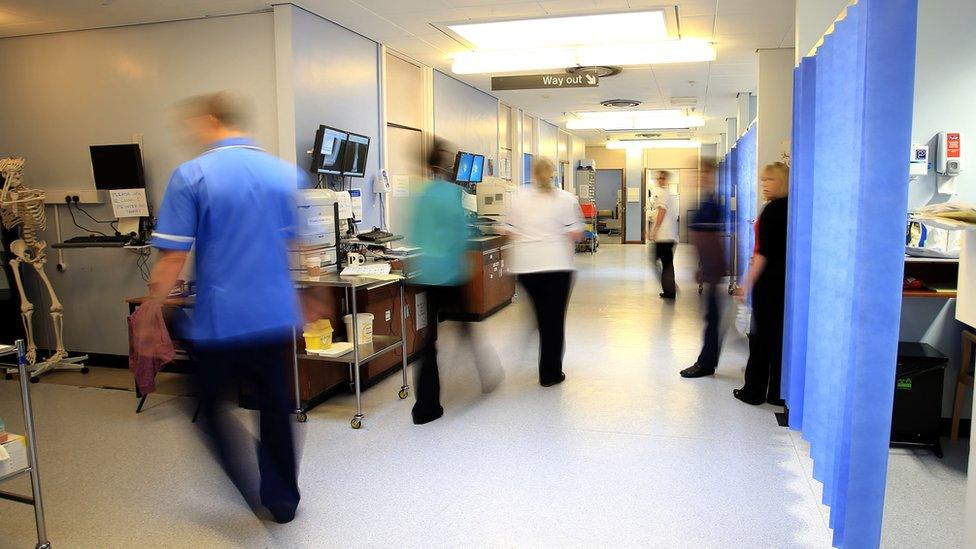Royal Preston Hospital takes over care home to free up beds
- Published

The move will also ease pressures on ambulance crews, the trust said
A hospital has said it will take over the running of a care home to free up extra ward beds.
The Royal Preston Hospital said it would start using Finney House for patients whose discharge was delayed.
The Lancashire Teaching Hospitals NHS Foundation Trust has said the move will take pressure off A&E.
It was estimated about 100 patients on any given day across the trust no longer meet the criteria for hospital - but have nowhere else to go.
Faith Button, chief operating officer at the trust, said: "This will take a huge chunk out of those delays in discharging people from our acute wards, which means we can get some flow through A&E.
"Over winter, it's probably just going to mitigate additional winter demand, but also it's the right setting for the patient - they shouldn't be in an acute bed and it means we can flow the acutely unwell patients from A&E into an acute bed, because they're freed up."
She said it would also ease pressures on ambulance crews with A&E being full.
'Start of something'
The trust also estimated it would cost about half as much to care for a patient in a community bed - the likes of which will be available at Finney House - as it does to keep them in an acute bed in hospital.
"We've then got escalated costs if A&Es are full and overcrowded and we are holding ambulances," Ms Button explained.
"So this really does seem like a solution for us. We're trying to get more integration between health and social care and the integration of community services with health.
"I think this is just the start of something for us," she added.
The trust is currently recruiting 62 full-time equivalent staff in preparation for the opening of the first 32 community beds at Finney House in Deepdale, next month.

Analysis
By Gill Dummigan, health correspondent, BBC North West
The ultimate main cause of pressures in A&E and ambulance services lies, not with the NHS, but with the crisis in adult social care.
For decades governments have struggled to bring down the number of patients stranded in hospital beds because they have nowhere else to safely go - be that a care home or their own home with a package of support.
This used to be seen primarily as a winter problem. But even before Covid it was becoming a year round problem - and the impact of the pandemic on the adult social care service was profound.
Many workers left the service, feeling let down by a system they felt had failed to prioritise safety or realising they could get better pay elsewhere.
Meaning now, for the first time in a decade, the adult social care workforce has shrunk and currently has about 165,000 vacant jobs according the charity Skills for Care.
By taking on Finney House, the trust gains control over a service which should help it free up dozens of beds in the main hospital. The hope being that it ultimately brings down waiting times for ambulances and at A&E.
And as winter approaches, that is an increasing preoccupation throughout the NHS.

Why not follow BBC North West on Facebook, external, Twitter, external and Instagram, external? You can also send story ideas to northwest.newsonline@bbc.co.uk, external
Related topics
- Published13 October 2022
